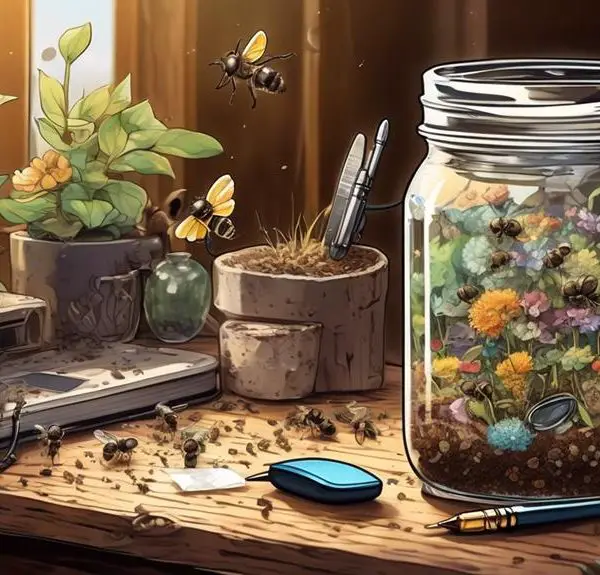Yes, you can fertilize your lawn with mason bees around, but how? Discover the delicate balance between a flourishing garden and thriving pollinators.
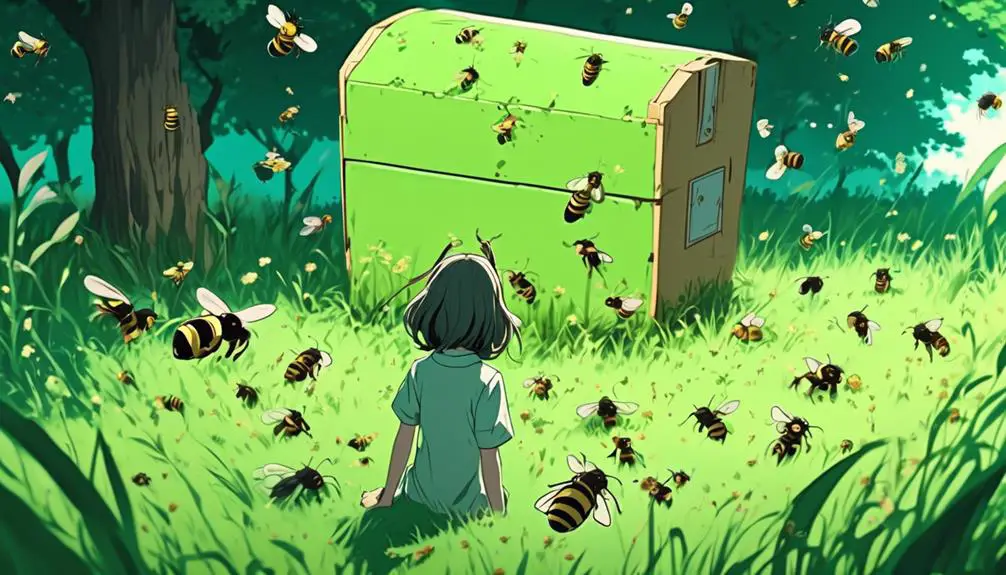
Can You Fertilize Your Lawn if You Have Mason Bees?
Imagine you've just discovered a flourishing colony of mason bees buzzing around your garden, making a home in the cracks of your brickwork. As a gardener, you're aware not only of their ecological importance but also the delicate balance needed to maintain your lawn and these beneficial pollinators.
Here's the catch: it's time to fertilize your lawn. You're stuck in a dilemma, questioning whether your fertilizing routine could potentially harm your new buzzing neighbors.
As we explore this topic further, you'll gain insights into the effects of common lawn fertilizers on mason bees and discover if there's a way to maintain your lush lawn without risking the well-being of these industrious insects.
Key Takeaways
- Mason bees are important pollinators and their health is crucial for the ecosystem.
- Chemical fertilizers can be toxic to bees, so it is important to use organic fertilizers.
- Safe fertilizing techniques include using organic or slow-release fertilizers and applying them when bees are less active.
- Organic fertilizers such as compost, bone meal, and fish emulsion are beneficial for mason bees and other beneficial insects.
Understanding Mason Bees
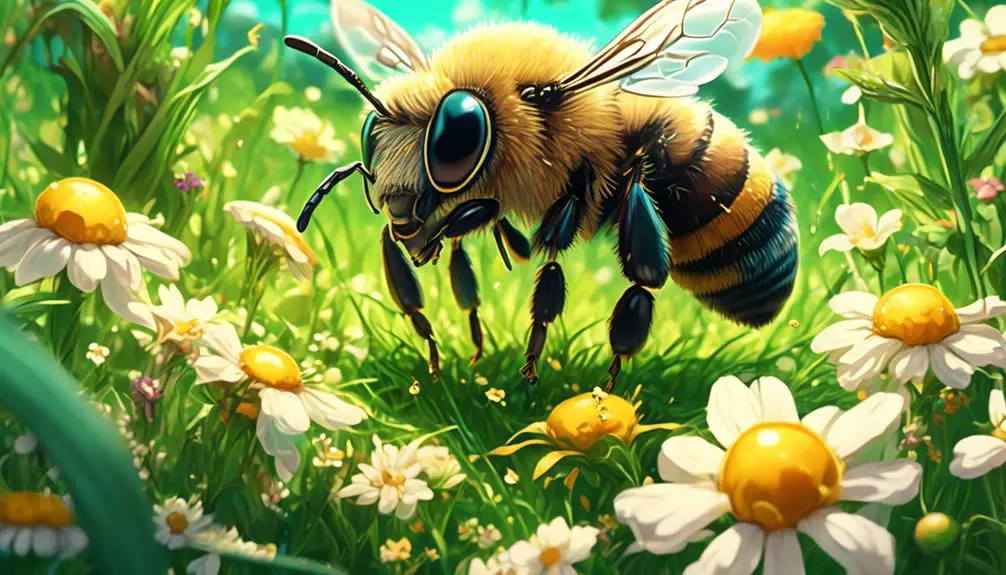
To fully appreciate the efficiency of using mason bees as natural fertilizers, it's critical that you first understand what these beneficial insects are and how they function.
Mason bees are non-aggressive, solitary bees that are native to North America. Unlike honeybees, they don't live in large colonies and don't produce honey, but they're exceptional pollinators.
You might wonder how these little insects can help your lawn. Well, their secret lies in their pollination prowess. As they move from flower to flower, collecting nectar and pollen, they inadvertently transfer pollen grains. The pollen not only fertilizes the flowers, leading to more fruit set, but also falls onto the ground, enriching the soil with nutrients.
Mason bees are also more hardy than honeybees. They can fly in cooler, wetter weather, extending the pollination season. Plus, they're incredibly low maintenance. Providing a habitat for them is as simple as setting up a small wooden box filled with tubes or hollow reeds.
In short, mason bees offer an eco-friendly, effortless way to boost your lawn's health and productivity. By understanding these bees, you're one step closer to a lush, thriving lawn.
The Effects of Fertilizers on Bees
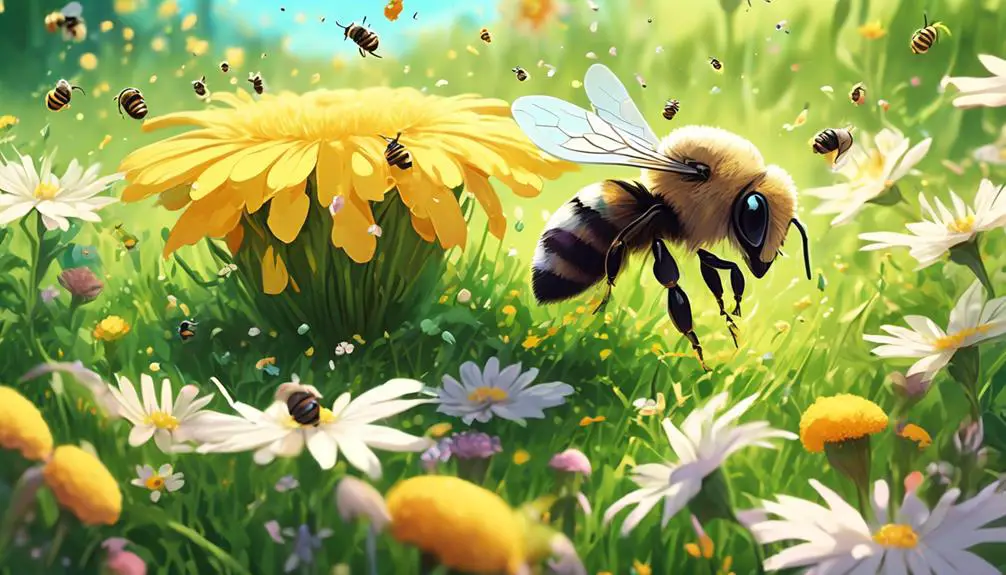
While you're harnessing the power of mason bees to naturally fertilize your lawn, it's important to consider how traditional fertilizers might impact these industrious insects. Chemical fertilizers, often laden with pesticides and herbicides, can be highly toxic to bees. They can contaminate the pollen and nectar that bees collect, leading to a decline in their population.
As you're likely aware, mason bees are essential for plant pollination. Therefore, anything that jeopardizes their health could have a ripple effect on your lawn's ecosystem. That's why it's crucial to understand what you're putting into your soil.
Organic fertilizers are a safer alternative. They're not only bee-friendly but also contribute to the overall health of your lawn. These fertilizers slowly release nutrients into the soil, improving its structure over time. You'll see a more robust, greener lawn, all while ensuring the safety of your mason bees.
Safe Fertilizing Techniques for Beekeepers
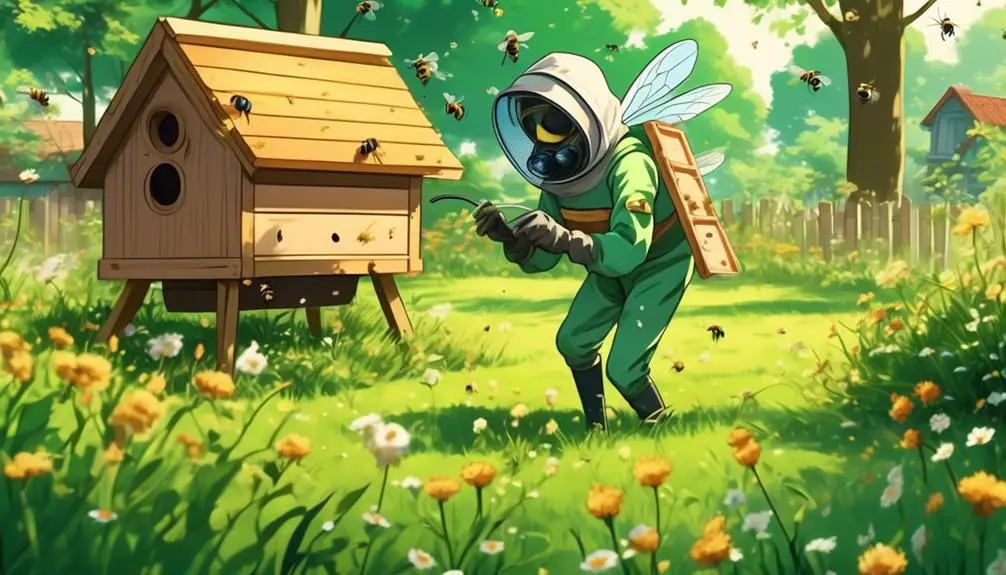
As a beekeeper, you've got a significant role to play in protecting your mason bees by adopting safe fertilizing techniques that don't harm these vital pollinators.
Firstly, opt for organic or slow-release fertilizers over synthetic ones. Organic fertilizers are less likely to contain harmful chemicals that could harm your bees and they release nutrients slowly, reducing the risk of runoff that could contaminate water sources.
Secondly, consider the timing of your fertilization. Applying your fertilizer in the early morning or late evening, when bees are less active, can minimize direct exposure.
Also, you can physically protect your hives during application. Covering them temporarily or moving them to a safe distance will shield your bees from harmful exposure.
Lastly, remember to water your lawn after fertilization. This aids in the absorption of the fertilizer into the soil, reducing the chance of your bees coming into contact with it.
Organic Fertilizers and Mason Bees
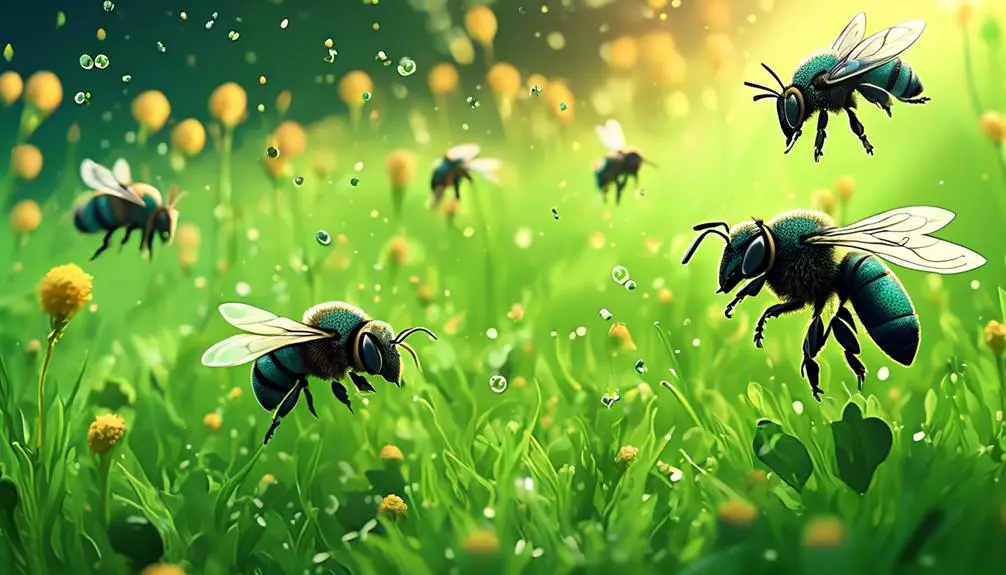
You'll find that organic fertilizers have a distinct advantage when it comes to supporting the health and productivity of your mason bees. These natural options not only enrich your soil, but they also create a safe environment for your bees and other beneficial insects. Because they're free from harsh chemicals, organic fertilizers won't harm your mason bees or disrupt their vital pollination work.
Consider using compost, a rich and nutritious option that you can make from your kitchen scraps. It's full of beneficial microorganisms that enhance soil health and aid plant growth.
Another great choice is bone meal, an organic fertilizer high in phosphorus, excellent for promoting root development.
Fish emulsion is another organic fertilizer that's beneficial for mason bees. It's a liquid fertilizer made from fish waste, rich in nitrogen, which promotes healthy leaf growth.
Balancing Lawn Care With Bee Conservation
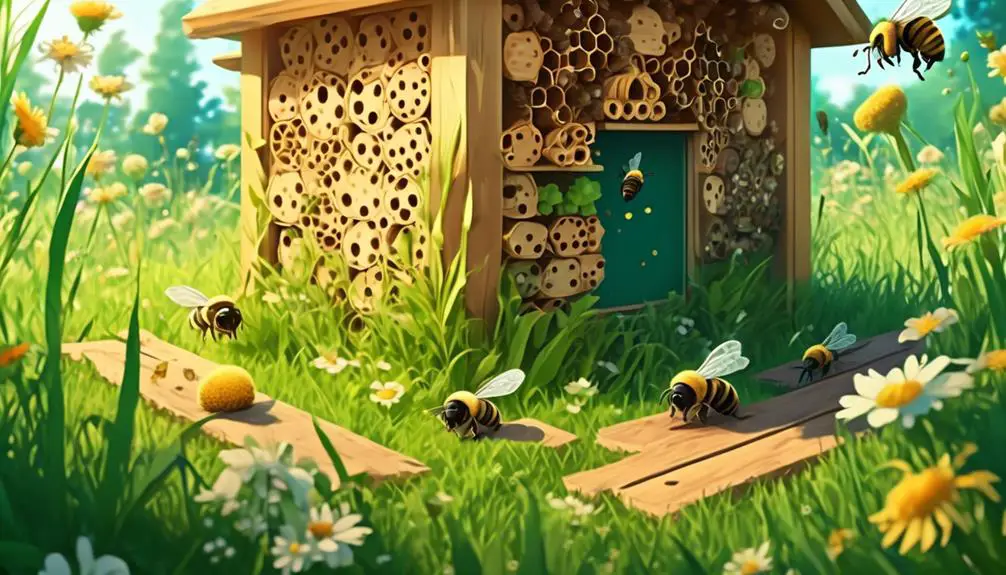
In the pursuit of a lush and vibrant lawn, it's essential to strike a delicate balance that not only nurtures your grass but also safeguards the well-being of your resident mason bees. These industrious insects are crucial pollinators, and their conservation should be a priority in any lawn care regimen.
You can achieve this balance by selecting organic, bee-friendly fertilizers for your lawn. These products often contain natural ingredients that won't harm the mason bees but will still provide your lawn with the nutrients it needs to flourish. Avoid using synthetic fertilizers or pesticides, as these can be harmful to the bees.
Timing is another crucial factor. When fertilizing, it's best to apply it in late evening, when mason bees are less active. This reduces their exposure to the product. Additionally, watering your lawn after applying the fertilizer helps to dilute it, further minimizing any potential impact on the bees.
Taking these steps won't just protect your mason bees; it'll also foster a healthier and more balanced ecosystem in your garden. Remember, it's not just about having a green lawn, but also about promoting biodiversity and sustainability in your yard.
Conclusion
Absolutely, you can fertilize your lawn even if you have mason bees. Just be mindful of the effects of synthetic fertilizers on these little pollinators.
Opt for safe fertilizing techniques and consider using organic fertilizers. It's all about striking a balance between maintaining a lush lawn and conserving your resident mason bees.
With a bit of care and consideration, you can have both a thriving lawn and a robust mason bee population.

